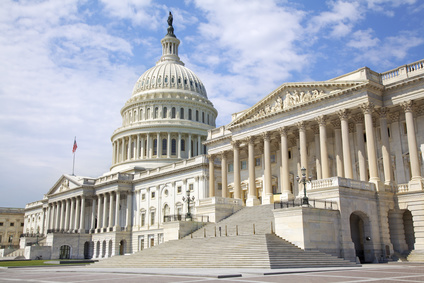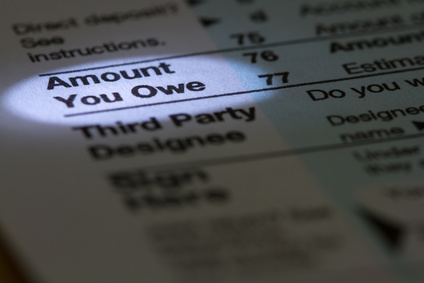The U.S. Court of Appeals for the Fifth Circuit recently affirmed summary judgment under the Fair Debt Collection Practices Act (FDCPA) in favor of the debtor and against a debt collector, where the debt collector failed to mark the debtor’s account as disputed when it credit reported the account. The debt collector admitted that it had not marked the account as disputed because it incorrectly believed that credit reporting a debt as disputed was subject to the requirements of 15 U.S.C. § 1692g, which governs validation of a debt and the treatment of disputed debts. In so ruling, the Fifth…
Posts tagged as “FDCPA”
With its unanimous ruling yesterday that a debt buyer is not a “debt collector” under at least one reading of the federal Fair Debt Collection Practices Act, the U.S. Supreme Court offered some clarity to the financial services industry seeking to assess debt purchaser FDCPA liability. It did, however, refuse to address an alternative interpretation that will likely be used in an attempt to end-run the ruling. The decision in Henson v. Santander Consumer USA Inc. is available at: Link to Opinion. Debt Collector Must Be Collecting for ‘Another’ Santander Consumer USA Inc. acquired defaulted loans from CitiFinancial Auto and then…
A purchaser of a defaulted debt who then seeks to collect the debt for itself is not a “debt collector” subject to the federal Fair Debt Collection Practices Act under an opinion delivered today by the U.S. Supreme Court. The issue before the Court was whether a purchaser of defaulted debt meets the FDCPA’s definition of a “debt collector” as one who “regularly collects or attempts to collect . . . debts owed or due . . . another.” 15 U. S. C. §1692a(6). Here, Santander Consumer USA Inc. acquired defaulted loans from CitiFinancial Auto and then began to collect…
The U.S. Court of Appeals for the Eleventh Circuit recently affirmed the dismissal of a complaint alleging violations of the federal Telephone Consumer Protection Act, the federal Fair Debt Collection Practices Act (FDCPA) and its analogue under Florida state law, because the plaintiff previously filed a separate lawsuit against the same defendant alleging violations of the TCPA based on the same conduct. Because the Eleventh Circuit concluded that the claims asserted in the second action were based on the same nucleus of operative facts, the plaintiff was barred from splitting her claims among the lawsuits. A copy of the opinion…
The U.S. Court of Appeals for the Ninth Circuit recently amended its opinion in Ho v. ReconTrust Co., maintaining and affirming its prior ruling that the trustee in a California non-judicial foreclosure did not qualify as a debt collector under the federal Fair Debt Collection Practices Act (FDCPA). The amendments to the prior ruling among other things add that a California mortgage foreclosure trustee meets the FDCPA’s exclusion from the term “debt collector” for entities whose activities are “incidental to … a bona fide escrow arrangement” at 15 U.S.C. § 1692a(6)(F). The Ninth Circuit also removed its prior discussion of…
The U.S. Bankruptcy Court for the Middle District of Alabama recently held that a mortgage servicer did not violate the discharge injunction in 11 U.S.C. § 524 by sending the discharged borrowers monthly mortgage statements, delinquency notices, notices concerning hazard insurance, and a notice of intent to foreclose. Moreover, because the borrowers based their claims for violation of the federal Fair Debt Collection Practices Act, 15 U.S.C. § 1692, et seq., on the violation of the discharge injunction, the Court also dismissed their FDCPA claims with prejudice. A copy of the opinion in Golden et al v. Carrington Mortgage Services,…
The U.S. Court of Appeals for the Eleventh Circuit recently affirmed the dismissal of a mortgage loan borrower’s federal Fair Debt Collection Practices Act and related state law claims because the defendant mortgagee was not a “debt collector” as defined by the FDCPA. In so ruling, the Court also rejected the borrower’s allegations that the monthly statements the mortgagee sent to the borrower after her bankruptcy discharge were impermissible implied assertions of a right to collect against her personally. A copy of the opinion in Helman v. Bank of America is available at: Link to Opinion. The borrower obtained a…
The U.S. Court of Appeals for the Seventh Circuit recently held that two debt collectors were entitled to demand payment for both principal amounts owed and interest under Wisconsin law. Therefore, the Court held, the debt collectors’ dunning letters demanding the principal sums owed and 5 percent per annum interest did not violate the federal Fair Debt Collection Practices Act, even where the demand was made prejudgment. A copy of the opinion in Aker v. Collection Associates, LTD. is available at: Link to Opinion. After the consumer plaintiffs failed to pay their bill for medical services received, their providers referred…
The U.S. Court of Appeals for the Second Circuit recently reinstated a complaint alleging a debt collector violated the federal Fair Debt Collection Practices Act when it sent a payoff statement containing unaccrued fees and costs without providing any information as to how those fees were calculated or any basis for those fees and costs. In so ruling, the Second Circuit was careful to note that a payoff statement may contain estimated fees and costs if the information in the statement would allow the least sophisticated consumer to determine the minimum amount she owed at the time of the notice,…
The U.S. Court of Appeals for the Ninth Circuit recently reversed the dismissal of a Fair Debt Collection Practices Act claim arising out of a non-judicial foreclosure. The Ninth Circuit ruled that section 1692f(6) of the FDCPA applies to non-judicial foreclosure activity. A copy of the opinion in Dale Dowers v. Nationstar Mortgage, LLC is available at: Link to Opinion. Two borrowers refinanced a loan secured by their home and executed a note and deed of trust. The lender assigned the note to a purchaser of the subject loan (the “loan owner”). Later, the lender assigned the deed of trust…
The U.S. Court of Appeals for the Ninth Circuit recently held that a notice regarding overdue homeowners association (HOA) assessments contained language that overshadowed and conflicted with the homeowner’s federal Fair Debt Collection Practices Act debt validation rights. Limiting the scope of its ruling in Ho v. ReconTrust Co., NA, 840 F.3d 618, 620 (9th Cir. 2016), the Court rejected the debt collector’s argument that in sending the notice regarding overdue HOA assessments, it merely sought to perfect a security interest and was therefore subject only to the limitations under 15 U.S.C. § 1692f(6). A copy of the opinion in…










